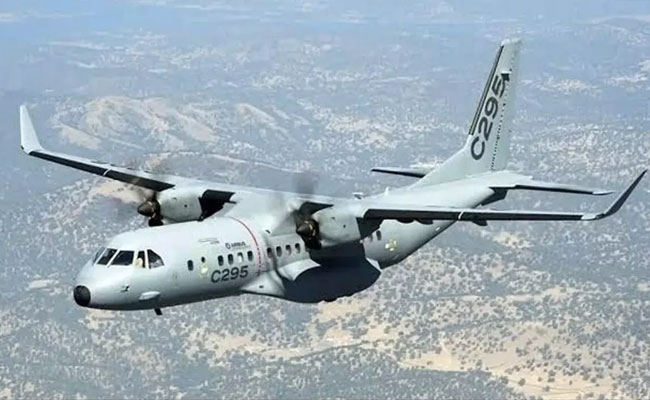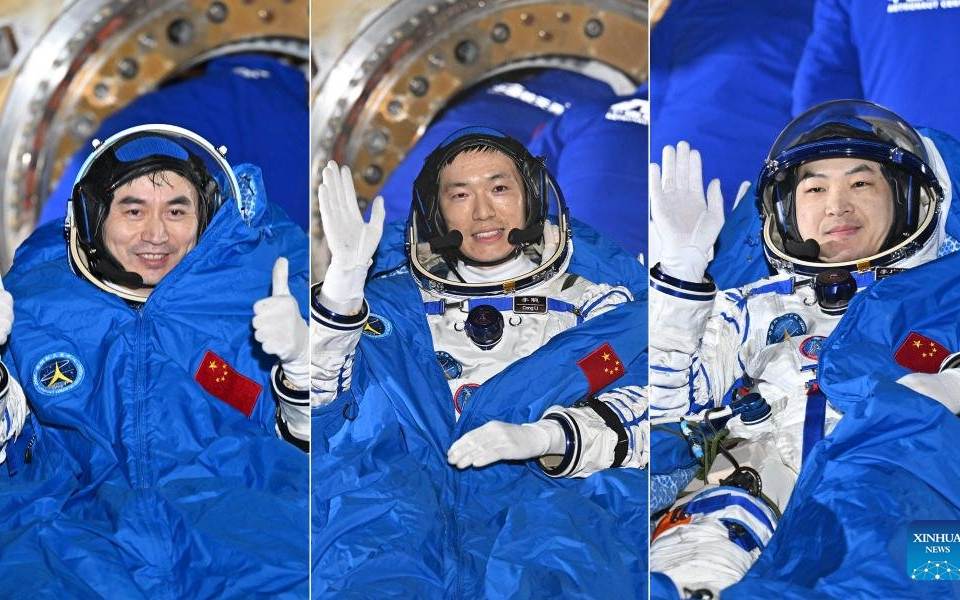New Delhi (PTI): India will get its first Airbus C-295 tactical military transport aircraft this month, an official of the European aircraft manufacturer said on Thursday.
"The first C-295 aircraft will be delivered to the Indian Air Force this month only," Remi Maillard, Airbus India President and Managing Director, told a press conference here.
Maillard was interacting with reporters after Airbus inked a memorandum of understanding with the Gati Shakti Vishwavidyalaya to train engineers for the aviation sector.
An Airbus functionary said that Indian Air Force chief Air Marshal V R Chaudhari will travel to Seville in Spain to take the delivery of the first C-295 aircraft.
India had inked an agreement with Airbus for supply of 56 C-295 military transport aircraft in September 2021.
As per the agreement, 40 aircraft will be built at the facility set up by Tata Advanced Systems Limited in partnership with Airbus at Vadodara.
Airbus will supply 16 aircraft in fly away condition from its facility in Spain.
The C-295, having 5-10 tonne capacity, is used for tactical transport of up to 71 troops or 50 paratroopers, and for logistic operations to locations that are not accessible to current heavier aircraft. It also has a proven capability of operating from short or unprepared airstrips.
Maillard said the aircraft production in India will begin in 2026.
Let the Truth be known. If you read VB and like VB, please be a VB Supporter and Help us deliver the Truth to one and all.
Beijing, Nov 4: Three Chinese astronauts who spent six months developing China’s low orbit space station returned to Earth safely early Monday, the China Manned Space Agency (CMSA) said.
The capsule of the spaceship Shenzhou-18' carrying astronauts Ye Guangfu, Li Cong and Li Guangsu, touched down at the Dongfeng landing site in north China's Inner Mongolia Autonomous Region at 1:24 am (Beijing Time).
The three astronauts, after staying in orbit for 192 days, were all in good health and the Shenzhou-18 manned mission was a success, the CMSA said.
Ye, the Shenzhou-18 mission commander, has become the first Chinese astronaut with an accumulative spaceflight time of more than a year, setting a new record for the longest duration of stay in orbit by a Chinese astronaut.
He served as a crew member in the Shenzhou-13 mission from October 2021 to April 2022.
"Chinese astronauts have flown to space in successive missions. I believe that the record of the duration in orbit will be broken in the near future," Ye said.
Another astronaut Li Guangsu said that they grew two types of plants -- cherry tomatoes and lettuce -- and they had harvested some lettuce leaves for food.
"Being able to eat fresh vegetables in space is truly a blessing. These green plants have also brought a touch of green and good cheer to our busy work," Li was quoted by state-run Xinhua news agency.
China launched the Shenzhou-18 manned spaceship in April this year.
During the mission, the Shenzhou-18 crew utilised the scientific experiment cabinets and extravehicular payloads to carry out dozens of experiments in the fields of basic physics in microgravity, space material science, space life science, space medicine and space technology, Xinhua report said.
The three were relieved by another set of three Chinese astronauts, including a woman who docked with the orbiting space station on October 30.
China changes crew for the station every six months.
China built its space station after it was reportedly excluded from the International Space Station (ISS) over concerns that China's space programme is manned by its military, the People's Liberation Army, (PLA).
The two robotic arms of the station, especially the long one which has the ability to grab objects including satellites from space, drew international concerns.
Early this month China announced its plans for the further development of space programmes which included launching a manned lunar mission, construction of a lunar space station, exploration of habitable planets and extra-terrestrial life to expand its space programme in the next few decades.





